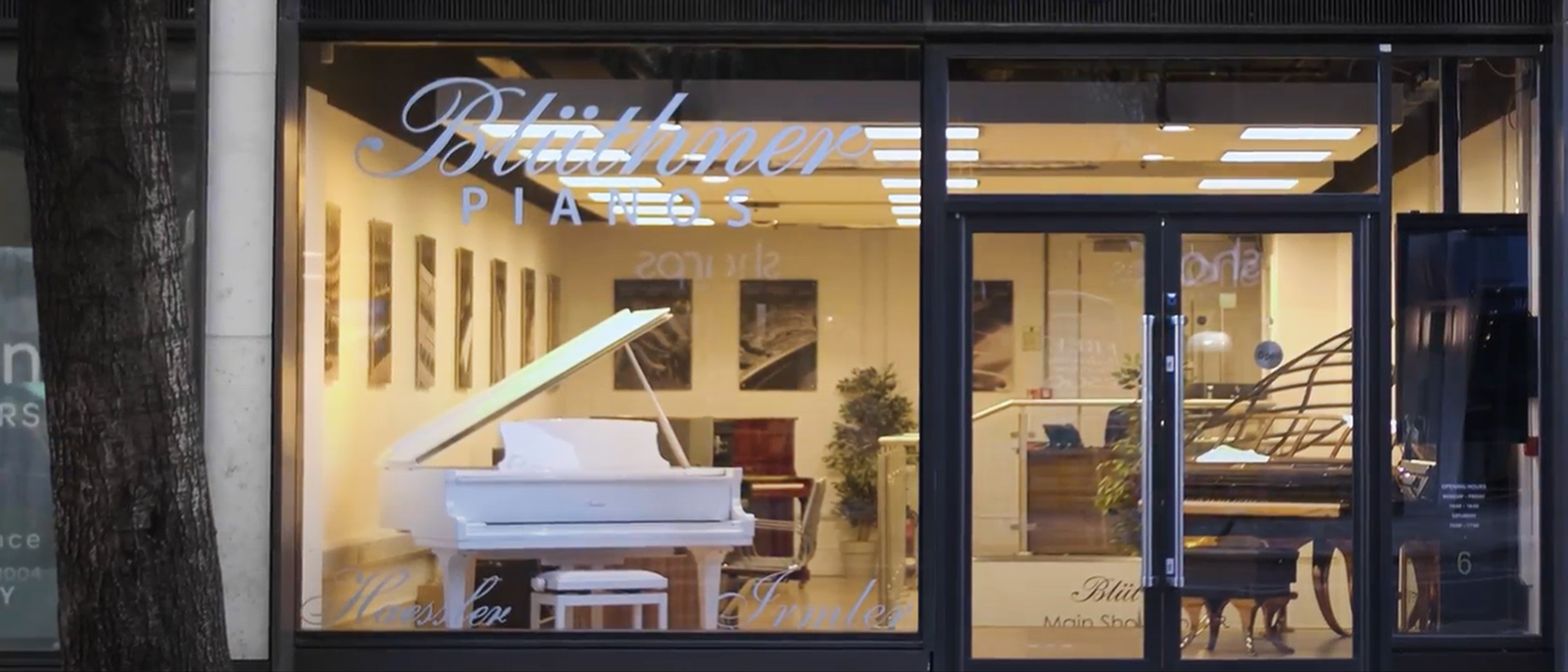
6 Baker Street
London W1U 3AA
Tel: +44 (0)20 7753 0533
Email: info@bluthner.co.uk

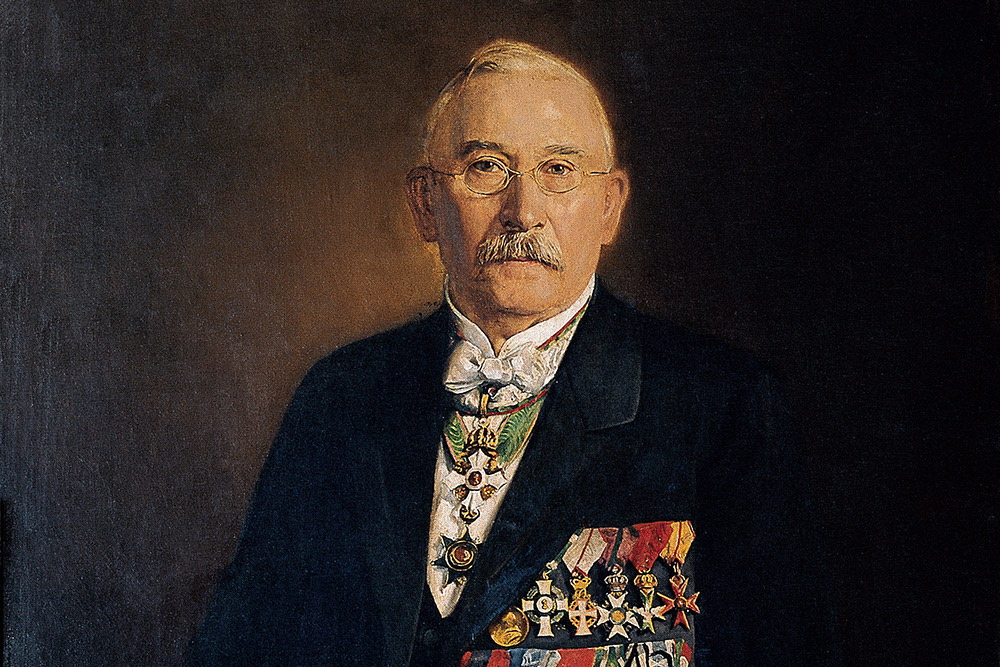
On 18th November 1853, with excellent credentials and a budget of “1660 talers, 2 new groschen, 1 penny and 1 farthing”, Julius Blüthner started his pianoforte factory. His instruments were quickly recognised for their outstanding technical and musical qualities and were established in concert halls all over the world.
“I will build new fortepianos and grand pianos of German and English design ... and then sell them” – This was the simple and consistent business plan of the young entrepreneur. Production began in a rented workshop with the help of three journeymen and the motto, “God will lead me!” Ten instruments were made in the first year, eight grands and two square pianos. Soon the instruments captured the attention of experts, top pianists and musical authorities. Around the world interested people were speaking about the unbelievable instruments built by Julius Blüthner in the city of Leipzig. Well known artists like Brahms, Jadason, Liszt, Mahler, Moscheles, Nikisch, Rachmaninov, Schumann, and Tschaikovsky were welcome guests in the Blüthner house. During their musical tours the artists reported about these most marvellous instruments. The appointment as purveyors to the court of Queen Victoria, the Russian Tsar Nicolas II, the Danish King, the German Emperor, the Turkish Sultan and certainly to the King of Saxony, underlines the approval bestowed on Blüthner instruments by the nobility.
Motivated by his success, Julius Blüthner started in 1868 to build an international sales and distribution network that soon spanned the world and can still be seen to flourish today. He used his participation at trade fairs and exhibitions in Brussels, Amsterdam, Melbourne, Paris, Philadelphia, Sydney and Vienna to present his latest instruments and innovations. The pianos received great acclaim for being serious concert instruments. All first prizes, gold medals and any decorations obtained subsequently in the history of the firm are still listed on the soundboard of every Blüthner instrument.
Soon the manufacturing facilities became too small for the growing level of production. Julius Blüthner purchased the rented workshop and also a large plot of land on which he built step by step until 1890 when he established the new factory suitable for 1,200 workers, with an 85,000 m2 manufacturing area to house the various production departments. During this time of rapid growth, it was important for Julius Blüthner to keep the company structured as a family business, and this attitude continued even after his death in 1910. Of his 8 children (4 girls and 4 boys), as was the custom of the time, his sons took on responsible positions in the company. Julius Blüthner was a strict teacher. All his sons were required to learn the business in detail and gain a thorough understanding of the entire production process.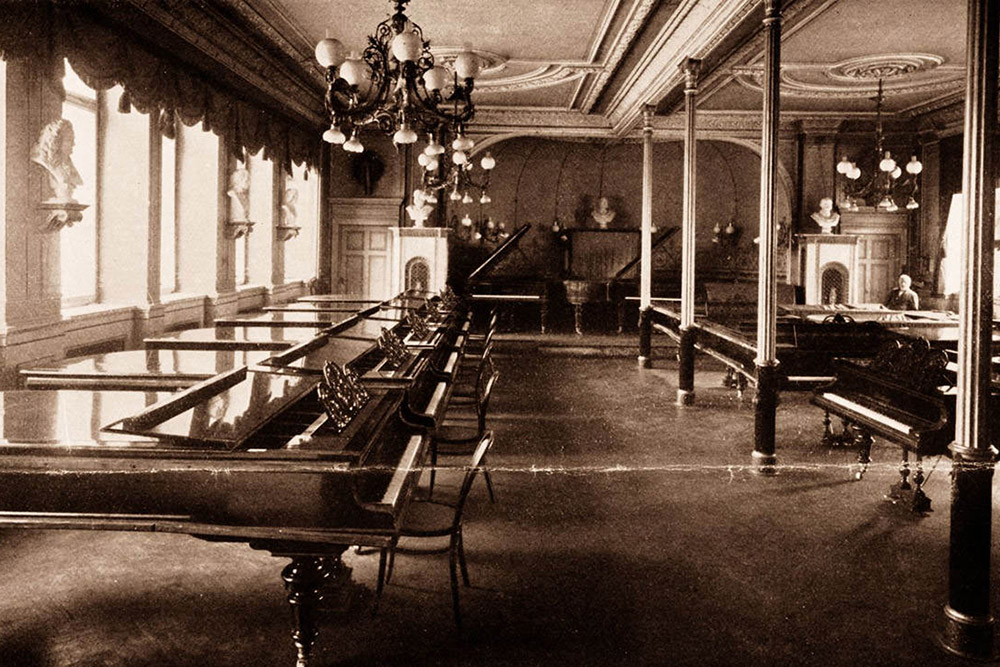
On 1st July 1892, Max Blüthner started as a partner in the enterprise. Like his brothers Bruno and Robert, he learned the craft of piano building and then honed his skills in London and Paris. Soon Max became the successor to his father. His major task was the management of the technical side of the instrument production. Step by step, the responsibility for the production and the global business rested on the shoulders of Max, Robert and Bruno. Now, as Julius Blüthner had wished, all aspects of the business were being handed down to successive generations of the Blüthner family.
The advantages of a family business became clear later during and after the First World War and also during the economic crisis in 1929 when Rudolph Blüthner-Haessler was at the helm of the company. In 1935/36 the German leaders selected Blüthner, well-known as a particularly innovative company, for a special task. The specification was to build an extremely lightweight grand piano for the airship Hindenburg. And so the first Blüthner crossed the Atlantic Ocean in an aircraft where, to the astonishment of the world, it was used for the first piano concert in the air. That performance was broadcast live by 63 radio stations around the world.
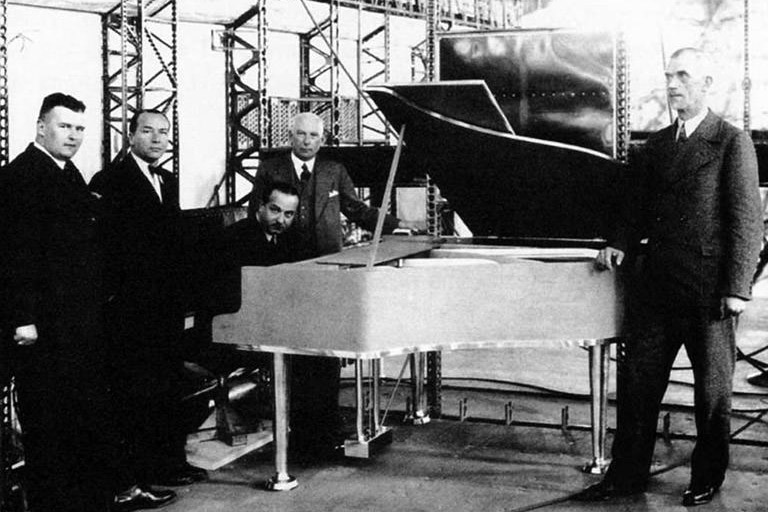
In 1932 the merchant and lawyer Dr. Rudolph Blüthner-Haessler took over the reigns of the company. He had the difficult task of guiding the company through the Second World War. With the responsibility to continue to build the enterprise according to the traditional Blüthner philosophy, it was with a heavy heart that Dr. Blüthner-Haessler was to see the family’s company completely destroyed by fire during an air raid. Totally burnt out, nothing was left apart from the walls. After the war, many friends and customers encouraged the family to rebuild the company. With determination and a strong vision for the future, Dr. Rudolf Blüthner-Haessler restructured the company and, despite conflicts with the German leaders, undertook the monumental task of re-building the company to an international standard.
It was in 1948 that instruments could finally leave the factory again. The company supplied famous conservatories and musical institutions such as the Tschaikovsky Conservatory in Moscow and the Leningrad Conservatory (as it was known at that time), whose outstanding pianists demonstrated the prevailing quality of the instruments.
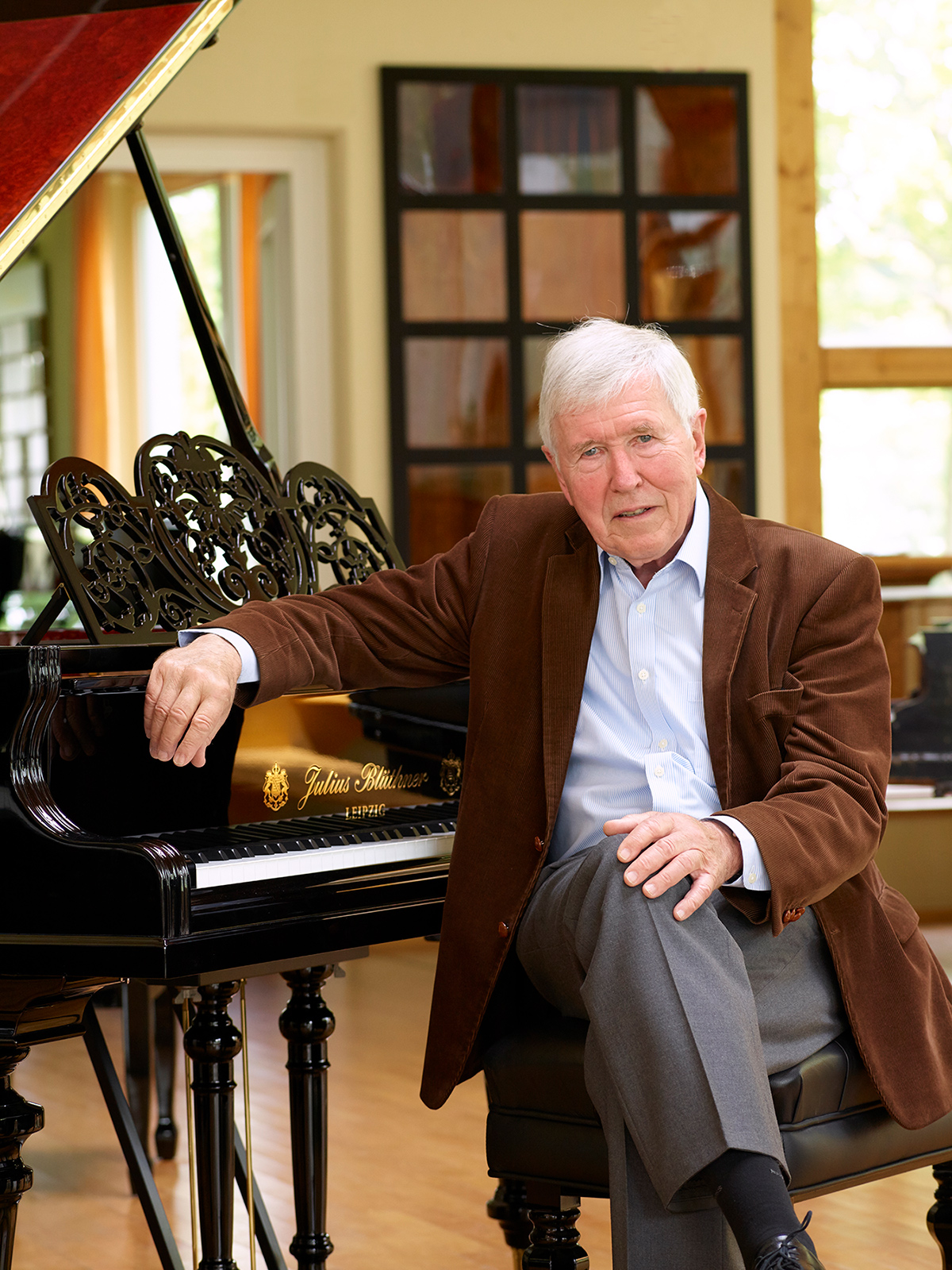
After the death of Dr. Rudolph Blüthner-Haessler on June 16, 1966, his son Ingbert Blüthner-Haessler took over the management. However, in 1972 the unlawful leadership and nationalization of East Germany by the government took place. His decision to stay in the company as managing director, in spite of the inherent pressure and doubt, was economically sound and crucially important for the future. After the fall of the wall in 1989, Ingbert Blüthner Haessler reorganised the traditional company back into a family business and, like the Blüthner generations before, expanded the production capacity. From 1994 to 1997 the family built a new factory in Störmthal near Leipzig. From 1995 Ingbert Blüthner-Haessler shared the management of the company with his two sons, Dr. Christian Blüthner-Haessler, who studied medicine and economics and Knut Blüthner-Haessler, who studied piano making and mastered every aspect of piano production.
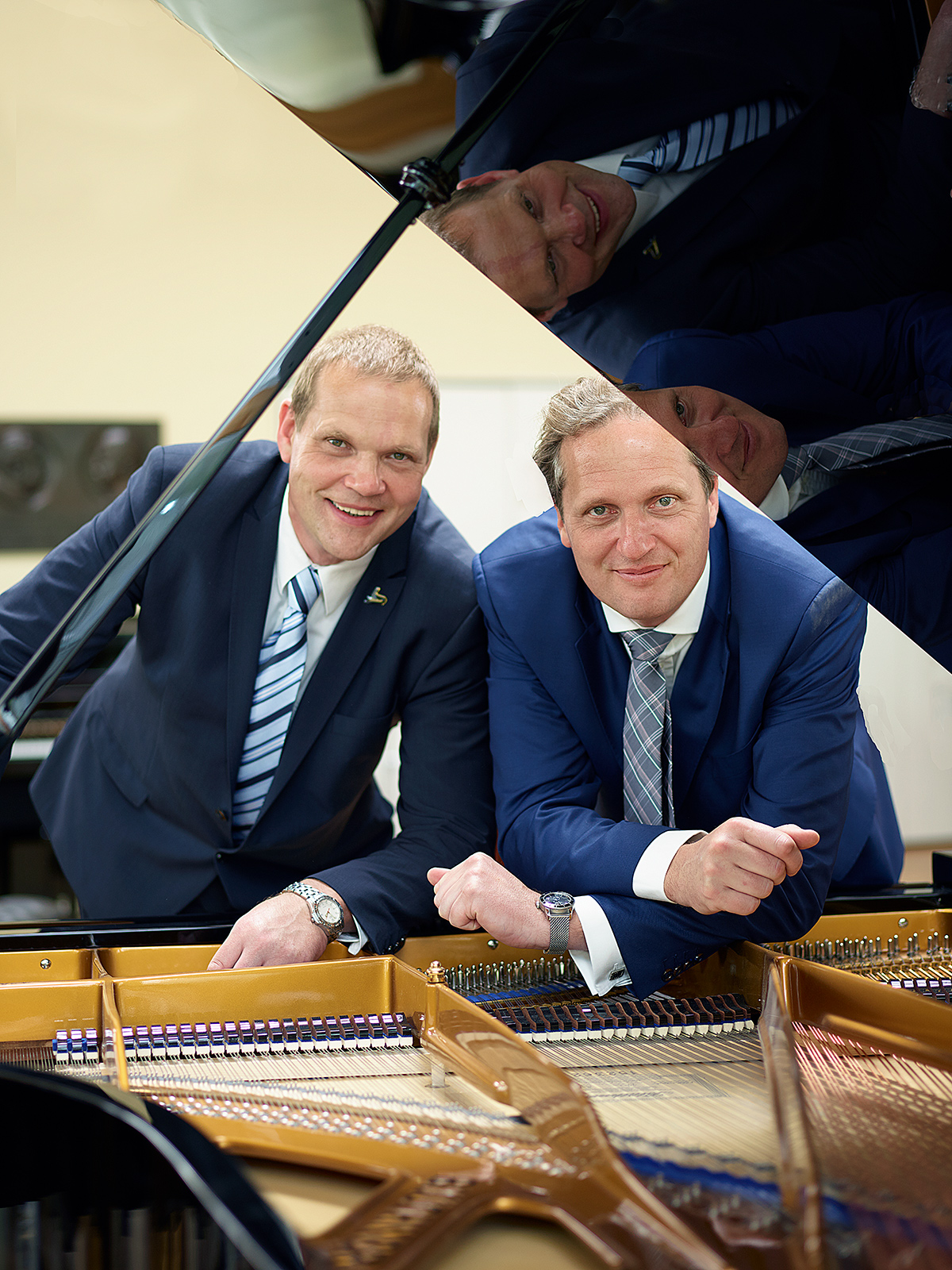
Today, Dr. Christian Blüthner-Haessler controls sales and finances of the company and Knut Blüthner-Haessler is in charge of production and all technical aspects. As a result of the large demand and the interest in Blüthner instruments, the company has subsidiaries and service centres in the United States, Great Britain, Russia, France, Netherlands, London, Vienna and Asia as well as a worldwide network of Blüthner dealers and business partners.